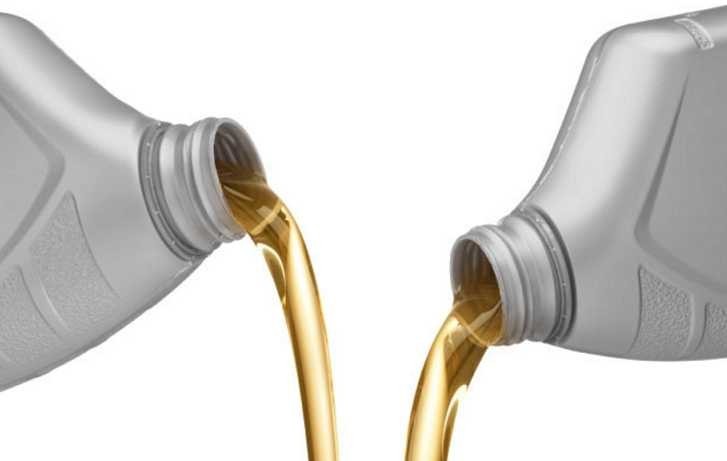The Pros and Cons: Conventional vs. Synthetic Oil
 It could cost you twice as much, but synthetic oil provides superior performance and value when compared to conventional oil. If you take your vehicle to a quick oil-change place, or to your local mechanic or dealership, they have likely suggested synthetic oil to you and maybe described the pros and cons of each. To shed some light on this often debated topic, all of us here at Pride Auto Body - Corporate are happy to provide you with this information, which you can hopefully use before your next oil change.
It could cost you twice as much, but synthetic oil provides superior performance and value when compared to conventional oil. If you take your vehicle to a quick oil-change place, or to your local mechanic or dealership, they have likely suggested synthetic oil to you and maybe described the pros and cons of each. To shed some light on this often debated topic, all of us here at Pride Auto Body - Corporate are happy to provide you with this information, which you can hopefully use before your next oil change.
Facts about Synthetic Oil
While conventional oil is refined naturally from crude oil, synthetic oil is artificially made from chemical compounds. There are some synthetic oils that contain a base made of conventional oil, and then are chemically changed to produce synthetic oil.
Two main advantages of synthetic oil over conventional oil: 1.) It reduces engine wear during cold starts and drive always and 2.) Reduces oil degradation.
In addition, synthetic oil can handle temperature extremes better and lasts much longer, which is one of the primary reasons why consumers prefer it so much. If you opt to use synthetic oil in your vehicle, you won't have to change your oil as frequently. While many car experts recommend 3,000 to 5,000 miles, some say it's okay to wait until your car reaches as many as 7,500 to 15,000 miles between changes. In fact, there is pending legislation in California right now that will require oil change companies and automotive repair shops to suggest longer intervals when synthetically is used.
One of the least attractive aspects of synthetic oil is that it costs more and in some cases twice as much more versus conventional oil. But, the main advantage is that it will last longer, which means you won't have to change it as often. One problem drivers have is that they forget to get their synthetic oil changes when the time is right, So, be sure to stay on top of your intervals and you won't run into that dilemma.
One final point to ponder—if you own a newer vehicle, check your owner's manual, because later models often require only synthetic oil. The engines and systems in today's newer cars (especially BMW, Mercedes-Benz, VW and Porsche) are designed to run solely on synthetic oil, so find out and adhere strictly to what the manufacturer requires.
The number one goal of this blog is to let you know how to keep your car healthy and performing well on the roads here in Van Nuys, CA and anywhere else as you travel safely throughout this great country!
Sources: Fresno Bee, Wikipedia and MSN














































 It could cost you twice as much, but synthetic oil provides superior performance and value when compared to conventional oil. If you take your vehicle to a quick oil-change place, or to your local mechanic or dealership, they have likely suggested synthetic oil to you and maybe described the pros and cons of each. To shed some light on this often debated topic, all of us here at Pride Auto Body - Corporate are happy to provide you with this information, which you can hopefully use before your next oil change.
It could cost you twice as much, but synthetic oil provides superior performance and value when compared to conventional oil. If you take your vehicle to a quick oil-change place, or to your local mechanic or dealership, they have likely suggested synthetic oil to you and maybe described the pros and cons of each. To shed some light on this often debated topic, all of us here at Pride Auto Body - Corporate are happy to provide you with this information, which you can hopefully use before your next oil change.
Social